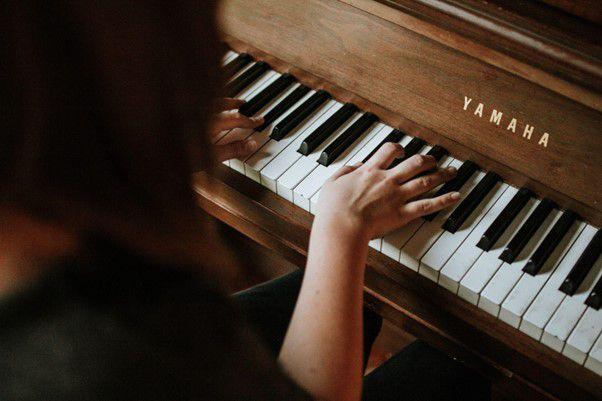Why making music is good for the brain

There's one thing we can all agree on: music is fun. Whether it's listening to our favourite songs while driving, attending a concert by our favourite band or strumming away on our instrument ourselves. But quite apart from this emotional factor, there are also substantial scientific reasons for learning an instrument.
Making music is better than any brain jogging game
Music has been proven to change the body. More precisely, making music changes the structure and function of the brain - and for the better! With the help of brain scans, the differences in the brain structure of musicians and non-musicians could be determined. In particular, the corpus callosum, a massive bundle of nerve fibres that connects the two hemispheres of the brain, is larger in musicians. The areas related to movement, hearing and visual-spatial abilities also seem to be larger, especially in professional keyboard players. Further research shows that musical training can improve verbal memory, spatial awareness and reading and writing skills. Musicians are also more mentally alert and have, for example, faster reaction times (auditory, tactile & audiotactile) than people who do not play an instrument.
A musical education therefore trains the brain better than any brain jogging game. Of course, it is easier for children to learn a new instrument quickly and thus to benefit longer and better from the effects described above. However, a significant improvement in cognitive abilities could also be demonstrated in adults after only about 14 months. This proves one thing again: it is never too late to learn an instrument!
Making music makes you healthier
As previously alluded to, making music has been shown to increase people's memory as well as their reading skills. But in more extreme cases, music can even help with dyslexia in children or the prevention of hearing loss or dementia in old age! And now that we know that making music helps people to react faster and that this ability decreases with age, learning an instrument could also have a preventive effect here.
What should also come as no surprise: Musicians are better multitaskers. They are better at processing multisensory inputs from their environment and, depending on the instrument, can coordinate their hands and feet independently of each other to a greater or lesser extent. We already know from evolutionary theory how important a multitasking ability was for the survival of our ancestors. And although these were very different times and circumstances, according to researchers, this theory can still be applied to our modern and digital everyday life.
Moreover, making music has been proven to make people happy. McMaster University found that babies who participated in interactive music classes showed better early communication skills. They also smiled a lot more! It may come as little surprise, therefore, that further test results showed positive health effects of making music on people with stress and depression.
Making music replaces an energy drink
You probably wouldn't have expected that, would you? But in the broadest sense, this too has been scientifically proven: Making music replaces an energy drink, so to speak. University studies have shown that even a 30-minute jam session increases the blood flow in the brain, which in turn can have stimulating effects on our energy levels. The result: you feel more alert, invigorated and motivated. That means the next time you're thinking about a quick trip to the coffee machine, why not try a short music-making break instead?
Are you as fascinated by this topic as we are? Then you might also like the following: In this Ted-Ed Talk called "How playing an instrument benefits your brain", the topic is summarised once again in a compact and visual way. Have fun watching!